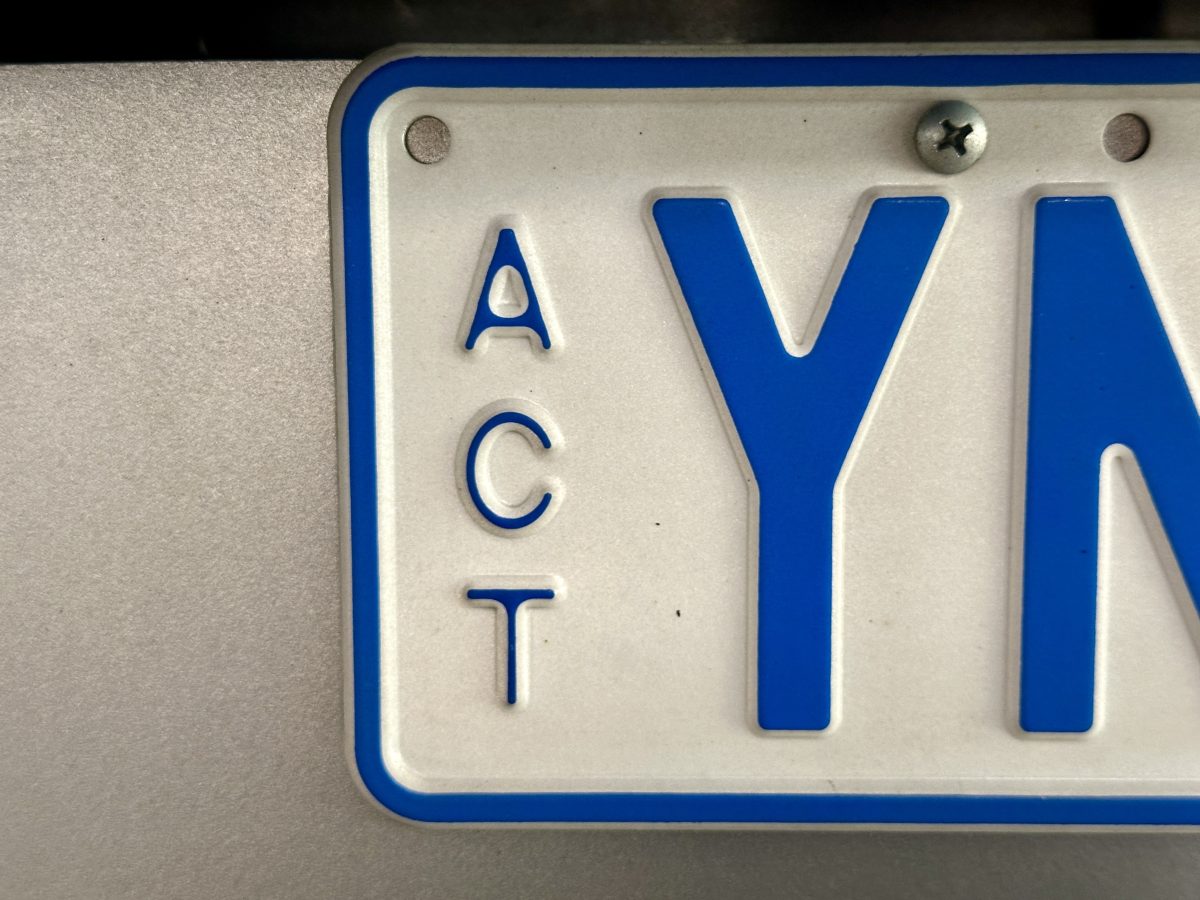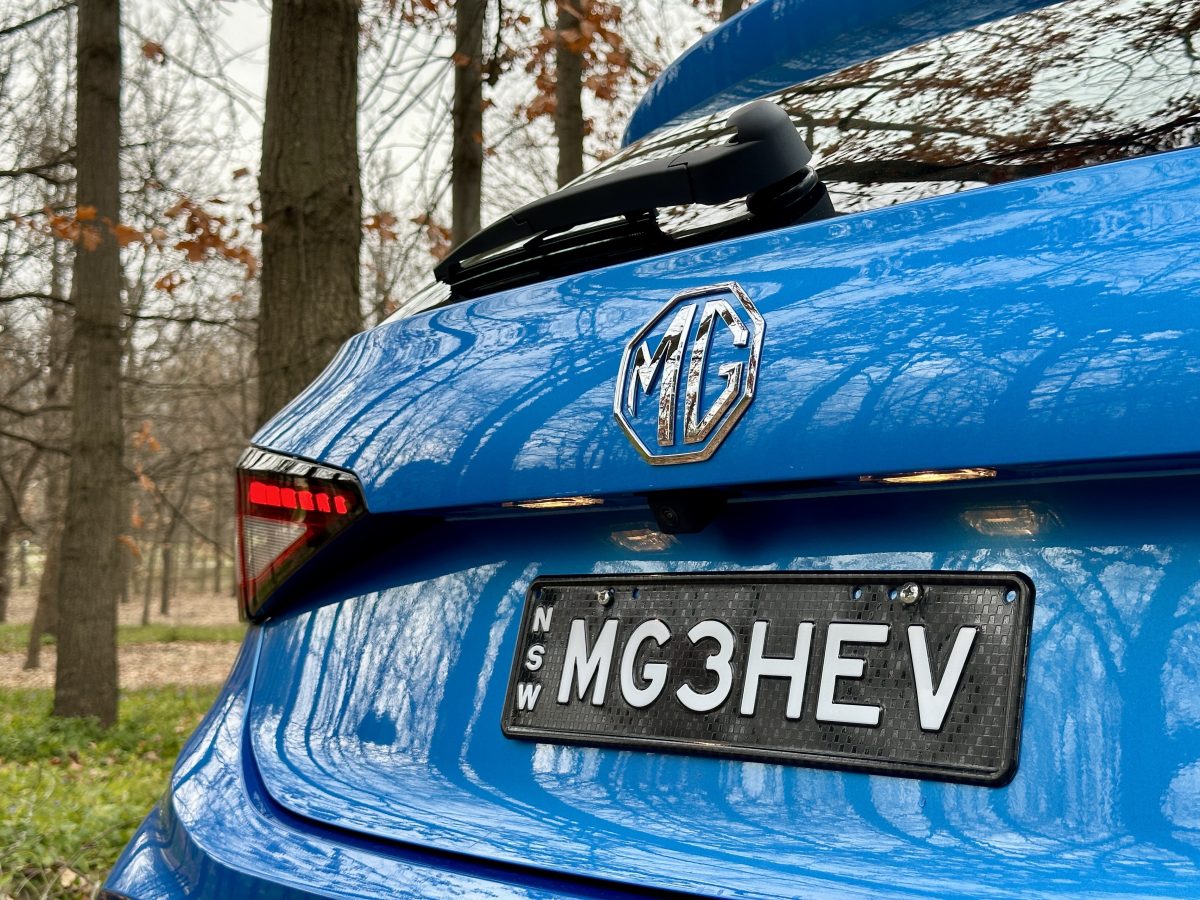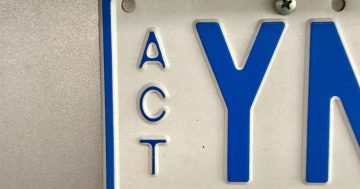
For now, NSW only issues Y plates to cars sold through dealerships. Photo: James Coleman.
Since 2012, the ACT has slowly but surely been conceding one of its most unique attributes to our neighbours over in NSW.
Yep, there are now plenty of NSW numberplates out there beginning with the letter ‘Y’. And depending on who you ask, it might be causing problems.
For six months, Linda (last name omitted by request) owned a 2010 Hyundai i30 hatchback that happened to share the same number plate as a Nissan Navara ute in NSW, and it was a frustrating six months.
Between when she bought the car and when it was written off in an accident, Linda would regularly receive notices of unpaid tolls from in and around Sydney, despite the fact she and the Hyundai had never left Canberra.
“Each toll road in Sydney was managed by a different company, so each time I received a toll notice, I had to contact the company and request they review the footage to confirm if the registration plate was ACT or NSW and what the make and model of the vehicle was,” she says.
“This would often take several days and several phone calls trying to reach someone who understood what I was trying to tell them.
“Frustratingly, the other car must’ve lived in Sydney because I kept receiving toll notice after toll notice.”
Eventually, she was able to get each toll company to put an alert on the specific number plate so someone would have to physically review the footage before sending out the bill.
“I can’t remember if it stopped because of the manual alert eventually put on the numberplate or because my car was written off,” she said.

Canadian balloon pilot Jacob Vaillancourt loves to collect numberplates from places he’s flown, and that now includes the ACT. Photo: Jacob Vaillancourt.
Technically, Y was never exclusive to the ACT.
The ACT ended up with it after a decision by the now defunct Australian Transport Advisory Council (ATAC) in 1948 that suggested numberplates that started with letters between XAA and ZZZ be reserved for the Federal Government and the two territories.
Rumour also suggests that Y was chosen for the ACT because of the shape of the city layout, or the Parliamentary Triangle.
Whatever the truth, the ACT’s first ‘Y’ plate of YAB-000 was issued in August 1968. But by 1998, the initial format was exhausted, so the last number was replaced with a letter (for example, YAA-00A) for a series envisioned to last for at least 40 years.
But South Australia and Victoria, as well as NSW, have issued their own Y plates over the years, too.
However, those in NSW are limited to plates requested by a car dealership, so you’ll find the name of the dealership stamped in small letters underneath the main alphanumerical combination (for example, John Smith Toyota).
Then there are the different colour schemes, with NSW’s plates made up of black letters and numbers on either yellow or white backgrounds and the ACT’s plates with blue letters and numbers on a white background.
But is this enough to avoid confusion by the likes of toll and speed cameras?
“Transport for NSW is not aware of NSW number plate holders being mistakenly issued penalty notices due to the actions of drivers of vehicles of ACT-registered vehicles with the same alphanumeric combination number plates, or vice versa,” a Transport for NSW spokesperson told Region.
“Revenue NSW carries out a review when a penalty is incurred but the vehicle doesn’t match with the number plate in the Transport for NSW system. This process will confirm whether or not a vehicle is displaying a NSW number plate and any fine is reprocessed if required.”

A custom NSW numberplate on a … you guessed it – MG3. Photo: James Coleman.
Likewise, a spokesperson told Region the ACT Government “is not aware of any crossover issues” with NSW plates.
“If a fine was incorrectly issued to a vehicle with non-standard plates, the matter would be resolved through the infringement review process,” the spokesperson said.
“All road safety camera and parking fines issued in the ACT are reviewed, adjudicated and issued by an authorised officer within Access Canberra.
“Authorised officers cross-reference the number plate and vehicle details against the vehicle appearing in the evidentiary image prior to an infringement being issued.”
Similar to Transport for NSW, Access Canberra does have the authority to issue fines to vehicles interstate, but only after a “physical review of evidence by authorised officers”.
Does this mean it never, ever happens? Not quite.
“If an ACT driver incorrectly receives an infringement from NSW or another jurisdiction, they can seek a review via the relevant state or territory government,” the ACT Government spokesperson added.
Original Article published by James Coleman on Riotact.






